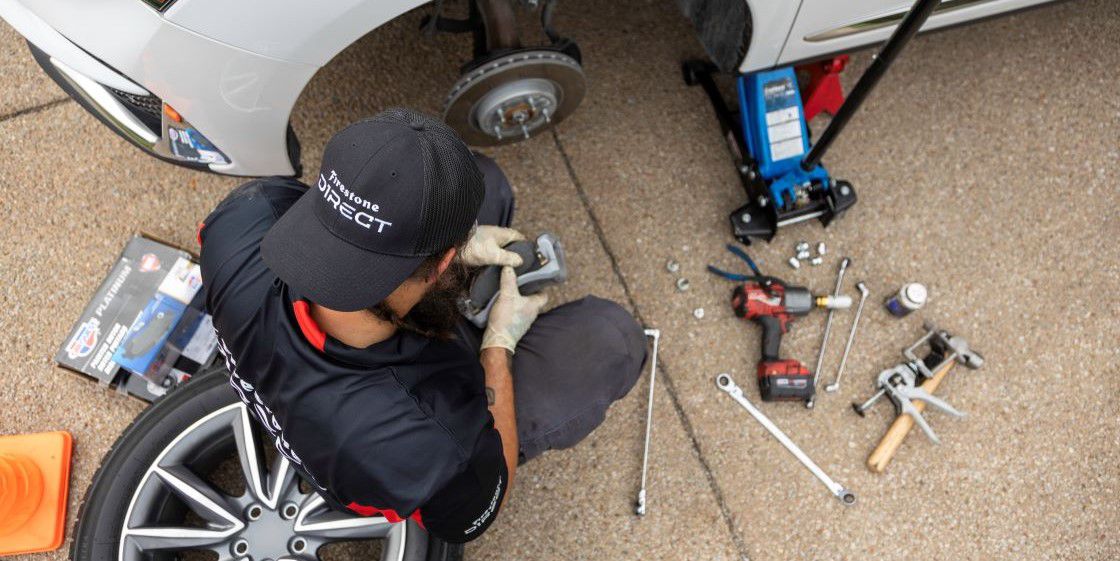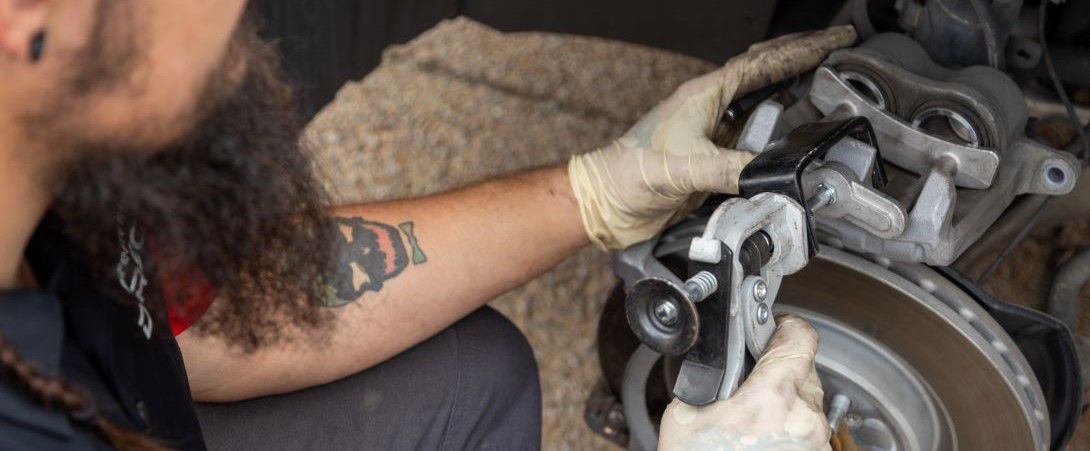Normal Squeaking
Moisture
Rain, ice, and snow can build up on your brake pads and your rotors — those are the two parts that make contact when you press the brake pedal. Likewise, condensation in the air can build up on the metal rotors overnight and create surface rust that usually will get wiped away after you brake a few times on your morning commute. In both cases moisture will lead to squeaking that generally goes away as you drive and is not cause for alarm.
Heavy use
Ongoing constant pressure on your brake pedal and overly aggressive stopping can cause your brakes to get hot. This creates a squeak or chattering sound. To troubleshoot this, pull over to a safe place, turn your engine off, giving your brakes a much needed break. Overheating your brakes consistently may cause damage that requires the services of a professional.
New brakes
When your Firestone Direct mobile mechanic installs new brakes on your car, they also make sure that your new pads come into contact with the rotors at the right angle and pressure to reduce the chance of glazing and squeaking.
Even with this precaution, the parts of your brakes might need a few miles to get into the proper groove, especially if you've gotten new rotors. Go easy on your new brake pads early on and aim for slow, gentle stops.


